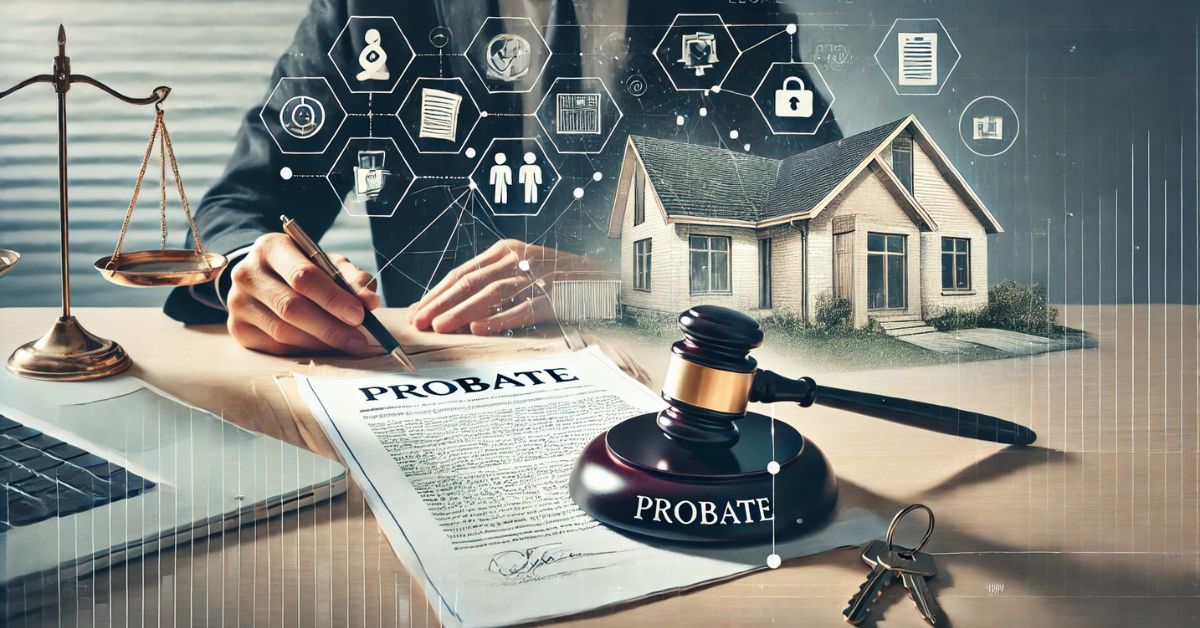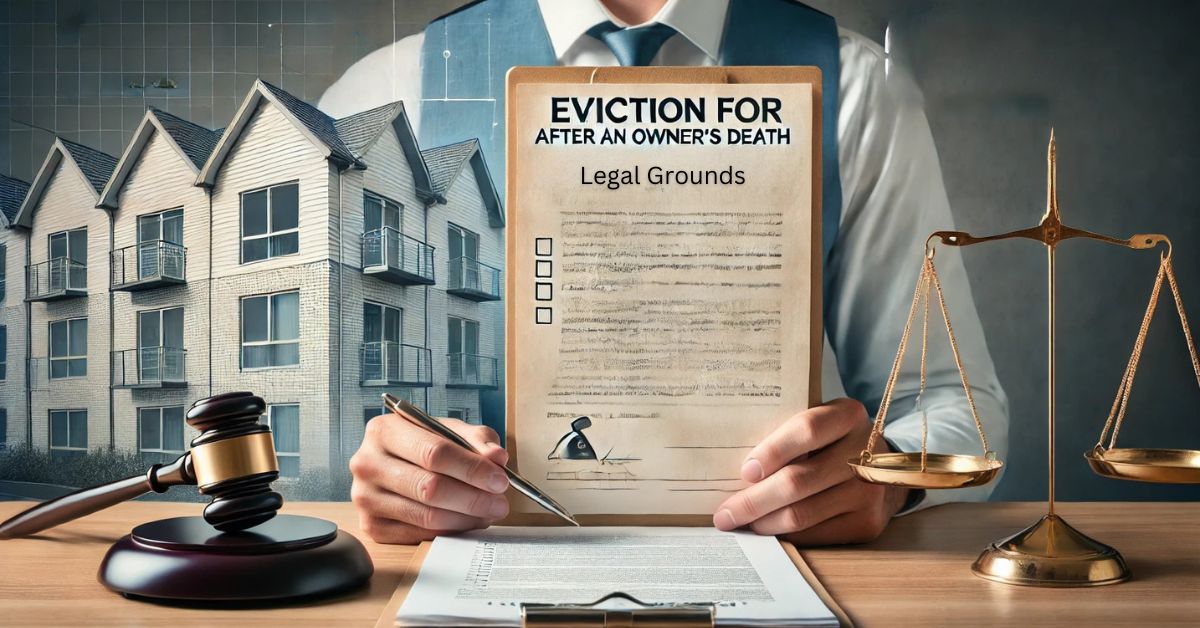The death of a property owner can bring about a host of complexities. One such complexity is the eviction process.
Understanding this process is crucial for real estate investors and property owners. It ensures legal compliance and maintains property profitability.
This article aims to guide you through the legal procedures of eviction after the death of an owner. It will shed light on tenant rights, rental agreements, and the probate process.
We will also delve into the nuances of tenant eviction laws. These laws can vary significantly, making it essential to understand the specifics of your jurisdiction.
Moreover, we will explore the benefits of professional property management services. These services can help navigate the intricacies of eviction, ensuring a stress-free experience.
Join us as we navigate the legal process of eviction after the death of a property owner.
Understanding Tenant Rights and the Lease Agreement
The relationship between tenants and landlords is largely defined by the lease agreement. When an owner passes away, this agreement does not automatically dissolve. Instead, the lease remains intact and its terms continue to be enforceable. This means tenants retain their residency rights, safeguarding their housing situation amidst the transition.

Tenants need clarity on what changes, if any, will affect their living arrangements following the owner's death. Property managers or estate executors must communicate effectively to avoid confusion and uphold the lease's integrity. This communication is essential to prevent unnecessary disputes and ensure a smooth transition.
Understanding the lease's specific terms can reveal crucial details about the property’s legal standing. Some leases include clauses that address changes in ownership, which can directly impact tenant rights.
Both tenants and property managers must familiarize themselves with these details. They ensure that actions taken are legally compliant and respectful of tenant rights. Ignoring these terms can lead to missteps in both management and tenant relations.
By adhering to the lease and recognizing tenant rights, property owners can mitigate potential conflicts. It is a proactive approach that enhances tenant confidence and property value.
The Impact of the Owner's Death on Rental Agreements
The death of a property owner does not invalidate existing rental agreements. These contracts remain binding until their natural expiration. Tenants are still obligated to uphold the lease terms.
However, the sudden change in ownership can bring new challenges. Responsibilities may shift to an estate executor or a new property owner. This transition requires all parties to reexamine the lease.
Understanding specific clauses related to ownership transition is crucial. It ensures both tenant and estate can navigate any changes without legal missteps.
Tenant Rights Under the Lease and Local Laws
Tenants have distinct rights under local laws, which the death of a landlord cannot override. These rights include the right to proper notice for lease modifications or eviction. Tenants must continue receiving services as stipulated in the lease.
Different regions impose specific obligations on landlords, even posthumously. Property owners or estate managers must comply with these varying regulations. Staying informed about local laws ensures tenant protection and diminishes potential legal issues.
In engaging with tenant rights, property managers can foster trust and preserve tenancy relations. It's an essential component of a smooth property transition following an owner’s death.
The Probate Process and Estate Management
The probate process is the legal procedure following an owner's death. This process determines how the deceased's assets, including rental properties, are managed and distributed. It can have significant implications for both tenants and remaining stakeholders.

During probate, a court appoints an executor or administrator to oversee the estate. This role is crucial as they are responsible for honoring existing contracts and managing tenant relations. The probate process can be lengthy, but understanding its steps helps prevent unnecessary delays and tenant anxiety.
Estate management during probate must consider the continuity of property operations. Rent collection and property maintenance should proceed without interruption. The executor ensures these tasks align with legal and lease obligations.
Navigating the probate process can be daunting for property owners and tenants alike. However, with clear communication and adherence to legal protocols, the transition can be managed smoothly.
Role of the Executor or Administrator in Managing the Estate
The executor or administrator holds critical responsibilities in managing a deceased's estate. They are entrusted with ensuring the property's affairs are handled with diligence and transparency. This role involves maintaining current rental agreements and overseeing property upkeep.
Their duty includes communicating clearly with tenants about ongoing processes. Keeping tenants informed reduces uncertainty and promotes cooperation. The executor acts as a liaison, balancing legal duties and tenant needs.
Ensuring compliance with local laws is another crucial aspect. This involves understanding tenant rights and facilitating necessary lease updates or adjustments. Executors play a pivotal role in keeping the property operational and legally compliant.
How Probate Affects Tenants and Eviction Proceedings
Probate proceedings directly impact tenants, influencing their lease security and future living arrangements. Tenants may experience uncertainty regarding the property's new management. Clear communication can alleviate concerns, helping tenants feel secure during this period.
The probate process does not alter tenant rights, but it can complicate eviction proceedings. Any eviction must follow legal guidelines and honor existing lease terms. Executors must navigate these proceedings carefully, respecting both legal requirements and tenant rights.
Understanding how probate affects eviction is crucial for property owners. It ensures that all actions comply with the law, protecting both tenants and the estate from potential legal repercussions.
Legal Grounds for Eviction After an Owner's Death
Evicting a tenant after an owner's death requires careful adherence to legal grounds. Understanding these legalities ensures property owners act within the law while maintaining tenant rights. Eviction is not automatic and must be justified legally.

Valid reasons for eviction might include lease violations, failure to pay rent, or holding over after the end of a lease term. These are typical grounds that remain unchanged even after the owner's death. Executors must verify these conditions are met before proceeding.
The eviction process must respect tenant rights outlined in the lease and local laws. Executors should handle each case individually, assessing unique tenant situations and lease specifics. This individualized approach helps avoid legal missteps.
Documentation is vital in eviction proceedings. Executors should maintain comprehensive records to support any actions taken. Clear records help substantiate the eviction, protecting both the estate and tenants involved.
Lastly, legal counsel can be beneficial. Professional advice can ensure that all steps are correctly followed, reducing risks of legal challenges or prolonged disputes.
Valid Reasons for Tenant Eviction
The most common valid reason for eviction is significant lease violations. This includes scenarios like illegal activities on the property or failure to pay rent. Another reason could be the lease term naturally concluding. Such circumstances are unaffected by the owner's passing.
In some cases, the estate may wish to reclaim the property for sale or personal use. Still, this must be approached with legal caution. Executors should verify the lease terms to ensure compliance with any regulations.
Conversely, eviction without a legal reason, such as personal grievances, is not permissible. Executors and property managers must prioritize legitimate, documented reasons to pursue eviction.
Required Notices and the Eviction Process
Issuing proper notice is a legal necessity in the eviction process. Tenants must receive written communication detailing the eviction reasons and the required actions. This notice serves as a formal step before beginning proceedings.
Different regions have specific notice period requirements. Executors should be familiar with local laws regarding these timelines. Allowing adequate time can prevent unnecessary conflicts.
Notices must be clearly composed and delivered per legal standards. Using registered mail or in-person delivery ensures proper receipt. These approaches reinforce the eviction's legality and uphold tenant rights throughout the process.
Navigating State and Local Eviction Laws
Eviction laws differ from one jurisdiction to another. This means the process can vary significantly depending on state and local regulations. Executors must thoroughly understand these variations to ensure compliance.

Engaging with local legal experts or property managers can ease the navigation of these complex rules. These professionals offer insights into the specific requirements and timelines applicable in different areas. Such expertise is invaluable for avoiding procedural errors.
Moreover, staying updated on any legal changes is crucial. Legislation evolves, and being informed prevents future issues. This proactive approach ensures the eviction process proceeds smoothly and lawfully.
Variations in Eviction Laws by Jurisdiction
Each jurisdiction establishes its eviction laws. This diversity affects notice periods, documentation, and grounds for eviction. Executors must tailor their actions to fit these localized laws.
For example, some states mandate longer notice periods than others. Ignoring this can lead to invalid evictions and potential legal challenges. Executors must respect these jurisdictional differences.
Additionally, tenant rights can fluctuate based on local statutes. By understanding these local variations, executors can align their strategies accordingly, ensuring a legally sound eviction approach.
Special Considerations for Rent-Controlled Properties
Rent-controlled properties introduce additional layers of complexity in evictions. These properties are subject to strict regulations designed to protect tenant rights and keep housing affordable. Executors must be acutely aware of these constraints.
Special legal conditions often accompany rent-controlled tenancies. For instance, rent increases and eviction grounds are more restricted. Executors face a higher burden of proof to justify evictions in these scenarios.
Finally, missteps in handling rent-controlled property evictions can have significant repercussions. Legal counsel specializing in rent control laws is advisable. Their expertise is critical in navigating these stringent requirements effectively.
The Role of Professional Property Management
Professional property management is crucial during challenging transitions. They ensure that legal procedures are followed correctly, reducing stress for property owners. Their expertise is instrumental in handling complex issues.
Additionally, property managers provide valuable guidance in maintaining tenant relations. This ensures continued tenant satisfaction even in uncertain times. They act as a buffer between tenants and property owners, easing potential conflicts.
By employing professional property management, owners can focus on other priorities. This is vital during the probate process, where numerous issues demand attention. With professionals at the helm, the process becomes more streamlined and efficient.
.jpg)
Benefits of Hiring a Property Manager During Probate and Eviction
Hiring a property manager during probate offers numerous advantages. They are well-versed in managing paperwork, reducing administrative burdens significantly. This level of support can be crucial when navigating the complex probate landscape.
Property managers possess extensive knowledge of tenant eviction laws. This expertise ensures compliance and minimizes legal risks during evictions. Their involvement can mitigate potential pitfalls and save time and money.
Moreover, property managers can handle the emotional aspects of tenant evictions. Their experience equips them to manage sensitive situations with care and professionalism. This approach maintains the dignity of all parties involved during difficult transitions.
How Property Management Can Enhance Tenant Satisfaction and Retention
Effective property management plays a vital role in tenant retention. Managers employ strategies to foster positive tenant relationships. Their presence reassures tenants of consistent care and attention.
Property managers address maintenance issues promptly. This responsiveness enhances tenant satisfaction, leading to increased lease renewals. Satisfied tenants are more likely to stay, reducing turnover rates.
Furthermore, property managers offer clear communication channels. This transparency builds trust, creating a harmonious living environment for tenants. Such proactive management ultimately benefits both tenants and property owners alike.
Conclusion
Navigating the eviction process after the death of a property owner is complex. Professional property management can provide essential support, ensuring a smooth transition for all involved. Their expertise simplifies the process, maintaining compliance and tenant satisfaction.
For property owners facing such challenges, consider enlisting professional management services. They offer the guidance and support necessary to handle these sensitive situations effectively. Ensure your property investments remain stress-free and profitable by taking this vital step.


